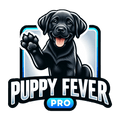833-526-9737

Guide to Puppy Nutrition: How to Choose the Perfect Dog Food for Your Furry Friend's Health and Growth
Introduction: The Importance of Proper Nutrition for Puppies
Ah, the joy of bringing home a puppy! But, hang on a minute; are you prepared for the responsibility that comes with it? Providing your furry friend with proper nutrition is essential, and let’s be honest – it can be quite overwhelming. So, where do you start? Right here! This guide will be your puppy-food bible.
The Role of Nutrition in Puppy Development
Imagine building a house. You need bricks, right? Similarly, nutrients are the building blocks for your puppy's growth. They ensure strong bones, sharp brains, and shiny coats. In short, nutrition makes sure your pup grows up to be a healthy and hearty dog.
Understanding Your Puppy’s Dietary Needs
Just like humans, puppies have their own set of nutritional needs. But wait! How do you know what they need? By understanding their breed, activity levels, and health status. Time to put on your detective hat!
Deciphering Dog Food Labels
Navigating the maze of dog food options is like trying to solve a crossword puzzle without any clues. But fear not! Once you learn to read and interpret those labels, you’ll be a pro in no time.
Key Nutrients for Puppies
Protein: Building Blocks of Growth
Your puppy is an adorable bundle of energy. Protein is essential for their growth, muscle development, and repair. It's like the fuel they need to run that seemingly endless engine.
Fats: Essential for Energy
Contrary to what some believe, fats are not the enemy. They are actually the superheroes of your puppy’s diet, providing the energy needed for their playful antics.
Vitamins and Minerals: Vital for Health
Think of vitamins and minerals as your puppy’s personal bodyguards. They protect your pup from illnesses and ensure they have a strong immune system.
Selecting the Right Dog Food
Alright, let’s dive into the ocean of dog food options. It’s enormous, but we’ve got you!
Types of Dog Food
Kibble
Kibble is the most common type of dog food and it's like the all-rounder in a sports team. It’s convenient, cost-effective, and comes in various flavors and formulas.
Wet Food
Picture this: a 5-star meal in a can. That’s what wet food is for your pup. It’s tasty, but can be pricey. Mix it with kibble for a gourmet twist!
Raw or Home-cooked Meals
Want to channel your inner chef? A home-cooked meal or a raw diet can be the ultimate luxury for your pup. But be cautious, as it requires careful planning to meet nutritional needs.
Tailoring the Diet to Your Puppy’s Breed
Poodles aren't the same as Labradors, are they? Different breeds have different nutritional requirements. Research your pup’s breed to find the best fit.
Understanding and Avoiding Food Allergies
Is your puppy itching or losing hair? It might be a food allergy. Identify and avoid allergens to keep your pup comfortable and happy.
Scheduling and Portion Control
Feeding your pup isn't a ‘free-for-all’ buffet. It’s an art. Portion control and scheduling are key.
Feeding Schedules
Young pups need several small meals a day. As they grow, reduce the frequency but increase the portion.
Determining the Right Portion Sizes
This isn’t a guessing game. Consult your vet to determine the right portion sizes for your pup.
Transitioning to Adult Dog Food
Time flies, and your little pup will soon be an adult. Transitioning to adult food is a gradual process. Take your time and let your dog adjust.
Conclusion: The Path to a Healthy, Happy Puppy
There you have it! A roadmap to navigate the world of puppy nutrition. With the right food, portion sizes, and feeding schedule, your puppy is on the path to a healthy and active life.
FAQs
How do I know if my puppy is allergic to a certain food? Look for signs like itching, hair loss, or digestive issues.
When should I switch my puppy to adult dog food? Generally, at about 12 months of age, but it can vary by breed.
Can I feed my puppy human food? Occasionally, as a treat, but ensure it's safe for dogs and meets their nutritional needs.
How much food should I feed my puppy? Consult your veterinarian for personalized advice based on breed, size, and activity levels.
Is it necessary to buy breed-specific dog food? Not necessarily, but it can be beneficial as breed-specific food is tailored to the unique needs of certain breeds.




Leave a comment